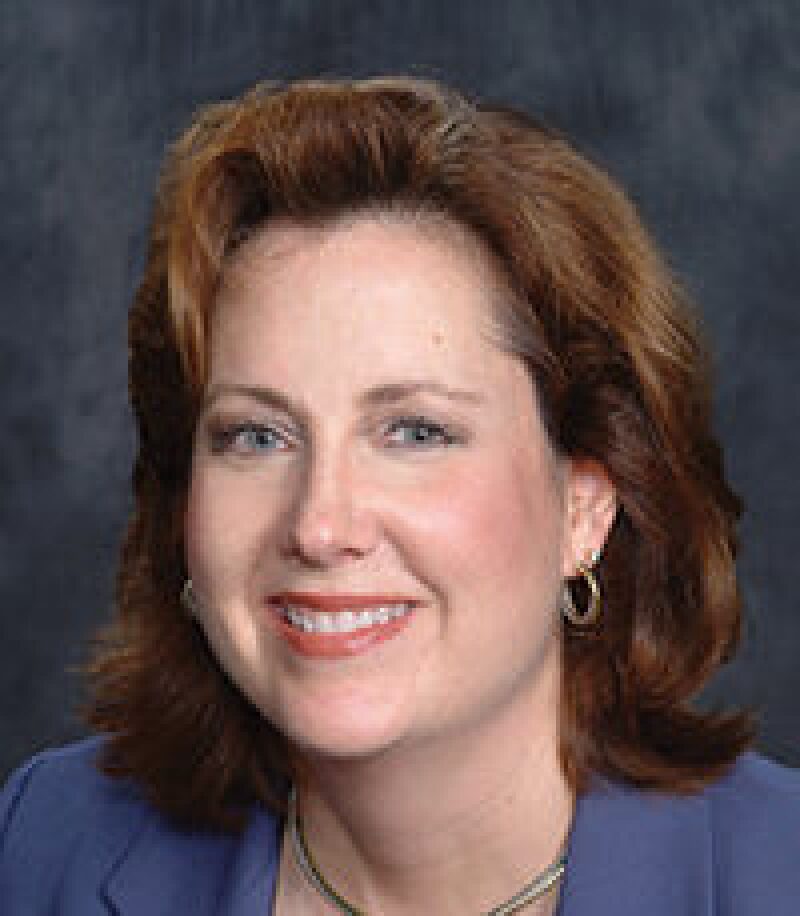Why did you choose the oil and gas industry?
KL: After attending the Colorado School of Mines, I knew the energy industry was where I wanted to be. I understood the importance it has on our world and quality of life.
JJ: I grew up in the industry. I am a native Houstonian and my father is an engineer who worked for one of the major pipeline companies. I thought that being an engineer would give me the opportunity to solve problems and see the world and it has.
How early in your career did you know you wanted to become a leader?
KL: My career has brought many opportunities to become a leader; it was more about choosing which of those opportunities to pursue.
JJ: I am the oldest child in my family so I have always naturally gravitated toward running things. I began my SPE leadership very early as a student chapter officer at Texas A&M University.
What kinds of leadership opportunities are available in the industry?
KL: The oil & gas industry has countless leadership opportunities; it’s a global industry that continues to be transformed through technological advances. People from all backgrounds and educations are needed to be leaders in the industry.
JJ: Unlimited, if you are good at your technical job, understand business, have emotional intelligence, and solve your boss’ problems. I am often asked about the technical versus managerial track, and most people are surprised that I am a strong advocate of the technical track, especially for women. When I speak to audiences of young engineers, everyone wants to be a manager, and now. But I find that most people don’t really understand what a manager does, and when they find out, it’s not as glamorous as they thought. All large companies allow engineers to rise almost to the C-level on the technical track. Life as a technical expert is more work/life friendly and the advancement is more merit-based, less political, and overall less competitive because it is based on your individual accomplishments. SPE also has excellent opportunities for leadership development and building your network and personal brand whether you are on the technical or managerial track.
What kinds of challenges did you face while seeking out positions of increasing responsibility? Any road blocks due to gender, familial status, age, technical background, etc.?
KL: There have been many successful women role models and the best companies respect the contribution made by women at all levels in the organization. As I took on roles of greater responsibility, I was blessed with support systems within the company and my family.
JJ: The first 20 years of my career were characterized by rounds of layoffs every two years or so. So mostly, it was a time of decreasing opportunity. I had to keep my technical ability sharp and add to my basket of skills just to stay employed. Early in my career, gender bias was overt, but now it is more subtle and unconscious. Women especially should let their supervisors know what opportunities they want—otherwise others can make assumptions and limit your options for you. I believe the most significant challenge for women is not dealing with children, but rather with dual-career issues, since our industry highly values mobility.
How were you able to manage a work/life balance while taking on roles of increasing responsibilities? Can you tell us about a specific time in your career when this was especially difficult?
KL: Maintaining work/life balance is a daily activity that I achieve through managing expectations. I am able to communicate to others what they should and should not expect of my time and what my priorities are. I learned early in my career, when I was traveling internationally and my children were young, that I have to rely on a broader support system. I make time for personal activities including exercise, reflection, and organization.
JJ: Work/life balance gets harder the higher you go, with more demands from people and travel. I try to plan for fun things in my life and not cancel them if I can. I can do almost anything with enough lead time. I believe you can have it all, just not always at the same time. The most difficult work/life balance time for me was a few years in my career when I was working, going to law school at night, and being the primary caretaker for a cancer patient. I would work, stop by MD Anderson hospital, go to class, stop by the hospital again, go home, and then get up and do it again. And during that same period, we had two rounds of layoffs at work. I had to adjust and compromise. I didn’t do work, caretaking, or law school as well as I should have, but I did the best I could while keeping all the balls in the air.
What qualities do you value in a leader? How do you exemplify these qualities in your day-to-day career?
KL: The very best leaders I have worked with are patient and articulate. They listen to people who work for them and reflect on the importance of the issue before reacting to it. In my current role, I bring together people from different functions (i.e., drilling, subsurface, infrastructure, land, finance, etc.) and evaluate new oil and gas unconventional exploration plays. My ability to listen first and articulate the importance of an issue is a critical skill every day.
JJ: That answer is easy—humility. Without humility, leaders don’t listen to those around them and miss both opportunities and risks. To me, the most valuable characteristic of a leader is humility.
While the number of women in upper management has increased over the last several decades, women are still a minority there. Do you have any specific advice for young women who want to take on high-level leadership roles in their career?
KL: Women who choose to support the success of other women are respected and highly valued. You will need to understand that you can have it all but you may not be able to do it all at the same time. Early on, you will have to delegate certain things to free you up, so you could focus on the most important activities.
JJ: First, be good at the job you have. I often see young engineers who are focused on the next job, and forget to be excellent at the job they have. High performance will always create opportunities. Also, leadership will require compromise in your personal life. This is true for both men and women, but it is usually easier for men to make the compromises.
In the past, many different engineering disciplines could easily enter the oil and gas industry. It seems as if this trend is narrowing in toward the mechanical, chemical, and petroleum engineering disciplines, particularly among operators. What are your thoughts on this? Do you have any advice for those from other engineering disciplines on obtaining leadership roles in the industry?
KL: The industry hires people from many different disciplines, both as new hires and experienced hires. I don’t see the trend narrowing; I think there is more value now than ever before for other disciplines, especially in experienced-hire situations. I am a civil engineer with an MBA and project management experience. I knew I wanted to work for an operator and I achieved that through the experienced-hire path.
JJ: There are so many different and complex engineering problems that there is a place for almost all engineering disciplines somewhere in the business, whether with the upstream operators, contractors, or service industries. I am a degreed petroleum engineer, so I naturally gravitate toward a preference toward petroleum engineers, especially for the subsurface disciplines. Petroleum engineers study exactly what we do in exploration and production, so they are fully productive from the first day on the job. Chemical and mechanical engineers have always entered the oil business easily, though more commonly in facilities design and project management. Other engineering majors, such as civil or electrical engineers, have tended to enter the industry through the service and contractor side, and many of them eventually gravitate to the operators. With experience, your college degree matters less and it is more about the skills that you bring to the table.
Do you think an MBA degree is important and/or prepares you for a leadership role?
KL: I think having a solid understanding of business concepts is important; obtaining an MBA is one route to accomplish that, but not the only way. Your personal contribution is the most important and an MBA can be highly valued.
JJ: I have advanced degrees in petroleum engineering, business, and law, so I am often asked this question. For someone who plans to stay in the mainstream part of the industry, I always recommend an MBA, preferably an executive or night school option. We are in the oil business, so a good understanding of overall management and why we make commercial decisions is extremely valuable. An MBA is always an additive skill set and will open doors in your career. In addition, I usually recommend that prospective managers do a rotation in a business planning role, to see the planning, budgeting, and portfolio processes and understand how management makes decisions. But don’t get sidelined in a staff position; return to a line position to stay on the management track.
How were you able to stay current with rapid changes and advancements in technology in the industry?
KL: I stay current by staying involved in the company and being open to new roles that expand my knowledge of the industry. I have worked in private and public firms, domestic and international locations, corporate and business unit positions, and both technical and managerial roles.
JJ: I have been in management for a long time, so I depend mostly on the people who work for me to keep me up to speed on what is happening in the industry. I do also attend both internal Chevron and external SPE meetings to find out the leading-edge technical challenges and solutions.
What should a young professional do to show that he/she is leadership material?
KL: Be open to learning new things, seek out mentors, and be respectful of people. Don’t be afraid to contribute your ideas and take on new challenges.
JJ: Impress somebody high up in your company with your ability to do a great job.
Any last comments on leadership opportunities in the oil and gas industry?
KL: The oil and gas industry is full of opportunities and it is increasing. I would choose this industry again today if I were a new college graduate.

Judah is a Distinguished Member of SPE and currently serves as SPE’s vice president of finance. She has previously been SPE regional director for Gulf Coast North America. Starting as a student chapter officer at Texas A&M University, she has served in several leadership roles, including the chair of the Permian Basin and Gulf Coast sections at different times. She has been a member of several SPE committees and was awarded the SPE Distinguished Service Award in 2010. She is a member and a past chair of Texas A&M Petroleum Engineering Industry Advisory Board, and is a member of Texas A&M College of Engineering Advisory Council and Society of Women Engineers.
Judah earned her BS and MS degrees in petroleum engineering from Texas A&M. She holds an MBA from the University of Texas of the Permian Basin and a JD from the University of Houston Law Center.


